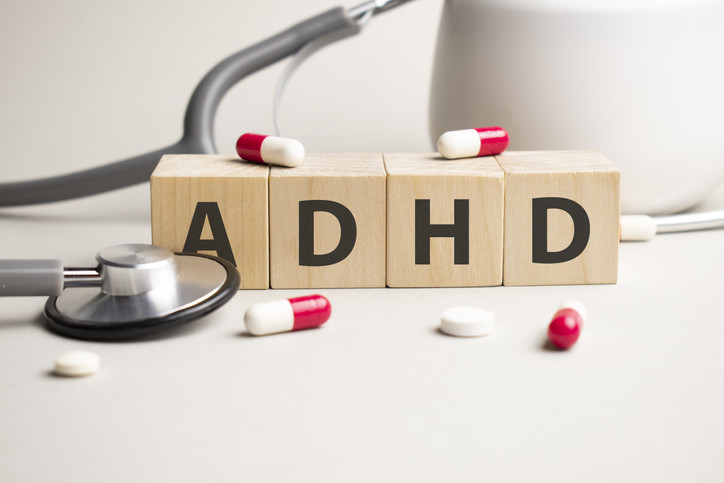
Wildfires: How to cope when smoke affects air quality and health

What can magnesium do for you and how much do you need?

Dry socket: Preventing and treating a painful condition that can occur after tooth extraction

What happens during sleep �� and how to improve it

How is metastatic prostate cancer detected and treated in men over 70?

Could biofeedback help your migraines?

What is autism spectrum disorder?

Plantar warts: Options for treating this common foot condition

Cancer survivorship: What comes next after treatment

Nutritional yeast: Does this savory, vegan seasoning pack a nutritional punch?
Diet & Weight Loss Archive
Articles
The new diabetes drugs: Your best shot for weight loss?
Several drugs originally developed to treat type 2 diabetes can help people shed as much as 20% of their body weight—far more than other anti-obesity drugs. Known as incretin mimetics, they also improve blood pressure and cholesterol levels. Up to half of all new-onset diabetes cases in this country are linked to obesity, a disease that now affects more than 40% of Americans. Both conditions are closely linked to cardiovascular disease.
A closer look at good cholesterol
Doctors concentrate on helping men lower their blood levels of low-density lipoprotein (LDL), or "bad" cholesterol, to lower their risk of cardiovascular disease. Lower HDL levels are associated with higher cardiovascular risk. This may be related to HDL's role in helping to remove excess cholesterol in arteries that can lead to plaque buildup and increase the risk of heart attacks and strokes. However, no specific therapies to raise HDL levels have improved outcomes.
Harvard study: Curb late-night eating to stave off weight gain
A 2022 study found that eating later in the day increases hunger, decreases the number of calories a person burns, and promotes fat storage. Over time, those effects could lead to weight gain.
Sugar substitutes: New cardiovascular concerns?
People who use artificial sweeteners such as aspartame (NutraSweet, Equal), acesulfame potassium (Sunnett, Sweet One), and sucralose (Splenda) may have a higher risk of cardiovascular disease compared with people who avoid these products. These zero-calorie sweeteners might not help people lose weight, and experts postulate that artificial sweeteners may trigger inflammation and alter normal metabolism, the gut microbiome, and blood vessels in ways that promote type 2 diabetes, unhealthy cholesterol levels, and high blood pressure.
How can meal schedules affect your weight?
Some doctors recommend eating meals earlier in the day to control weight, and some evidence backs that up. For example, a 2022 study found that eating later in the day increased hunger and fat storage, and decreased appetite-reducing hormone levels and fat burning. To eat meals earlier in the day, one approach is eating either two large meals per day (a large breakfast and a second large meal in midafternoon) or at least having a third meal that ends by 5 p.m.
Kidney health quick-start guide
Unhealthy lifestyle habits, chronic diseases, and genetic conditions can damage the kidneys and reduce their ability to do their many jobs. But many precautions can help protect the kidneys. Examples include controlling diabetes; lowering high blood pressure; moderating intake of salt, alcohol, and protein; limiting intake of oxalate-rich foods such as spinach, almonds, or cashews; losing weight; stopping smoking; exercising regularly; staying hydrated; limiting the use of nonsteroidal anti-inflammatory drugs (NSAIDs); and getting annual kidney function tests.
Attention deficit disorder linked to higher heart disease risk
People with attention-deficit hyperactivity disorder, a condition marked by trouble focusing and impulsive behavior, may be more likely to have cardiovascular disease that people without the disorder.
Eating disorders in midlife
By age 40, one in five women has dealt with an eating disorder, twice the proportion of women known to be affected by age 21. Risks for anorexia, bulimia, and binge eating can rise at midlife due to job stressors, an empty nest, and dating again after divorce or widowhood. Health effects can include bone loss, heart problems, lung conditions, gastrointestinal issues, diabetes, and skin breakdown. Signs of an eating disorder include dramatic weight fluctuations, excessive exercising, and preoccupation with weight, calories, and body size and shape.
When is the "right" time for weight loss surgery?
Weight-loss surgery is now viewed as a way to both prevent and treat health problems linked to extreme obesity, such as diabetes, heart disease, and sleep apnea. Annually, more than 250,000 Americans undergo bariatric procedures, which can help extend their lives. Weight-loss procedures include sleeve gastrectomy, gastric bypass, and gastric banding, which reduce stomach size and change the way the body absorbs food. The surgery adds to other weight-loss measures such as diet, exercise, and medications.
Heart health guidelines get updated
The American Heart Association recently revised its checklist for achieving optimal heart health. Adequate sleep was added, and updates were made to previous recommendations for diet, cholesterol and blood sugar measurements, and nicotine exposure.

Wildfires: How to cope when smoke affects air quality and health

What can magnesium do for you and how much do you need?

Dry socket: Preventing and treating a painful condition that can occur after tooth extraction

What happens during sleep �� and how to improve it

How is metastatic prostate cancer detected and treated in men over 70?

Could biofeedback help your migraines?

What is autism spectrum disorder?

Plantar warts: Options for treating this common foot condition

Cancer survivorship: What comes next after treatment

Nutritional yeast: Does this savory, vegan seasoning pack a nutritional punch?
Free Healthbeat Signup
Get the latest in health news delivered to your inbox!
Sign Up











